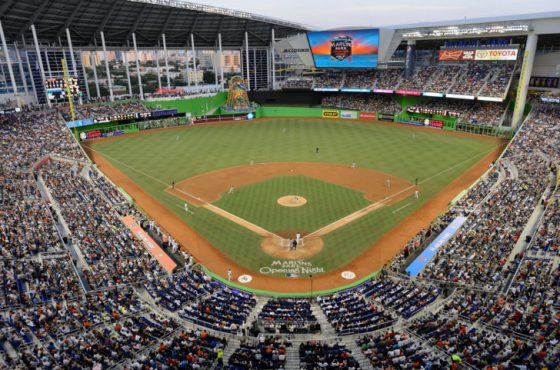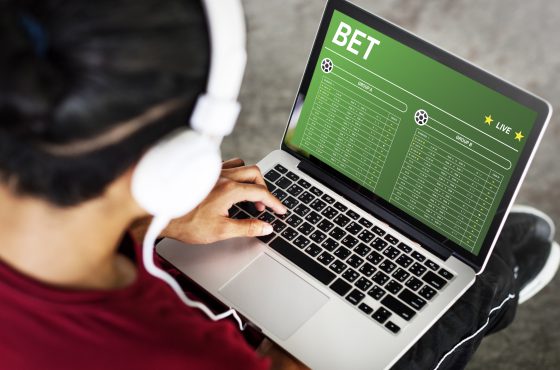What Is Next for US Sports Betting
The US Supreme Court will rule in June on the New Jersey sports betting ban known as PASPA. The outcome could revolutionize the sports betting industry and world markets. What does the future hold for sports betting in America. What is the next step for US sports betting and how will bettors respond to the changes.
The sports betting future of America
The battle for legalized sports betting in New Jersey is now waiting for a Supreme Court decision. It could be a landmark decision for the future of sports betting in America and involves billions of dollars for the betting industry. US bettors make up over 50% of illegal sports betting action worldwide with betting in Europe and the off-shore online betting operations in Costa Rica, Curaco and other destinations.
US states are prohibited from offering sports betting unless they had legal betting in place between 1976 to 1990. Nevada is the only state currently permitted to offer single game sports betting — a virtual monopoly. The US Congress has the ability to strike down and override any state law trying to implement sports betting. New Jersey has sued this ban as unconstitutional and the Supreme Court decided to hear the case.
Lower courts have upheld the ban until the Supreme Court decided to hear the appeal which surprised many lawmakers. The majority of cases are refused with no further appeal granted. New Jersey is arguing that the sports betting ban disallows states to make their own decisions about sports betting. The Supreme Court chose the option to hear the case which was not expected. This acceptance by the court to hear the case is already a small victory for New Jersey no matter what the outcome.
What if the Supreme Court overturns the sports betting ban
The figure from Nevada legal sports betting is in excess of 5 billion dollars per year. If New Jersey is successful and the court overturns the ban, sports betting on professional and college sports would be legal in New Jersey to the extent permitted under the new legislation. The case for other states to enact the own legislation would depend on the residents and state legislators. A voting referendum would probably be required by state legislation.
However, 20 states have already gained approval for a sports betting platform.
Attitudes towards sports betting varies greatly between states with the deep south firmly against it. The bottom line is how states can generate additional revenue for their depleted state budgets. Legalized sports betting generates fees and taxes in the millions of dollars. Las Vegas has seen an increase in sports betting revenue for Nevada over the past few years in the millions of dollars for infrastructure and other state projects. Other states wish to copy this revenue stream if the federal ban is overturned by the Supreme Court.
How will states implement a legal sports betting platform
The lawful enactment of any state legislation that applies to sports betting would be regulated and operated within the state borders. If online sports betting is legalized in a state, it would be restricted to operate within the borders of that state. The Wire Act from the sixties prohibits any bets or relayed phone information across state lines but did not specify the internet which was not in existence. Back then, bets were over phone lines as information was spread across state lines and some bookies were prosecuted.
Technology has advanced since the days of landline phones and bookies. Nevada allows casinos to offer online betting apps to anyone inside the Nevada borders. Anybody, including tourists, can create an online legal account from their favorite sportsbook and download to their smartphone for betting action. The software technology blocks any betting action outside Nevada borders using an IP address location and other blocking software. Other states can copy this enforcement measure to keep revenues in state and comply with regulation.
States legalizing sports betting will need to regulate the industry within any existing regulatory framework. Financial investments will be required to oversea responsible sports betting programs. Any financial outlays will be easily paid for from the future fees and taxes on gaming revenue and the increase from job opportunities created by expanding and operating a new state program.
How will a potential road block from tribal gaming interfere with existing tribal and state contracts. Pre-existing agreements might not allow a sports betting platform but amendments will be necessary to appease those interests looking for a piece of the action. The question is will small and medium tribal ruling bodies be able to implement their own sports betting program. A need for renegotiation of tribal contracts by state officials can be done to settle any disputes to reach equitable agreements for all parties involved.
There has been a broad base of support among firms in the sports betting industry, the state legislators and sports associations formed by state casinos and tribal organizations. The American Gaming Association is playing a heavy role in removing the stigma surrounding sports betting and gambling.
More people are accepting sports betting and gambling as a revenue producing form of entertainment.
The bookmakers of the future
While different avenues to legalization are explored in the U.S., several big-name companies are already lining up in anticipation of what would be a major shift in American sports culture. Familiar Nevada and European sports betting operators, like MGM and William Hill, are eyeing the opportunity to work with Native American gaming interests. MGM has locations in Detroit, Maryland, Illinois and other states ready to add sports betting operations. Online daily fantasy sports sites, with their infrastructure and established player bases in a coveted demographic, would be in good position to offer traditional sports betting if made legal.
The biggest bookies in the future might be popular names you know. A review of recent patents in the betting genre revealed Microsoft, Sony, Reuters and Wall Street financial firm Cantor Fitzgerald to be either existing holders or applicants. A number of individual entrepreneurs are in the game with patents for “systems and methods for enabling remote device users to wager on micro events of games.” And others have built virtual currency-based wagering systems designed to be implemented on social media platforms like Facebook.
“In 10 years’ time, I expect sports betting to be part of major telecommunications companies and data companies,” said Chris Eaton, an integrity monitor and former investigator for INTERPOL. “I see the large international conglomerates — Bloomberg, Google, the massive data companies — swallowing up most of the sports betting operations around the world and operating an international platform, with all of sports betting being essentially offered on the mobile device, the mobile platform.”
A Microsoft spokesperson said the company had “nothing to share at this time” regarding its patent for a betting exchange or any future interest in the sports betting industry. Microsoft’s patent coincides with a research paper by David Pennock, a principal researcher and assistant managing director for the company. Pennock’s research produced an innovative wagering mechanism akin to pari-mutuel systems used in horse racing that Microsoft wanted to patent. There were no immediate plans for its use, Pennock said, but he does envision a future with tech companies involved in the sports betting world.
“In 10 years’ time, I expect sports betting to be part of major telecommunications companies and data companies.”
Chris Eaton, an integrity monitor and former investigator for INTERPOL
“I do think that there’s a lot of technology involved that’s not that trivial, especially for the more innovative things that I imagine are going to happen; so some of the technology companies may be better suited than an old-school sportsbook,” Pennock said. “I think maybe some of the technology companies are in better position to build the [betting] exchange in a better way.”
Mark Cuban, owner of the NBA’s Dallas Mavericks and outspoken proponent of expanding legal sports betting, agrees. “In the short term, there will be a lot of attempts by companies big and small to use their own versions of big data to be predictive in sports, financial markets and other industries,” Cuban told ESPN. “In the long term, it will come down to what sources of information and which companies will help create the most powerful learning and reproductive algorithms and who will own those algorithms. I don’t have that answer and neither does anyone else at this point.”
Movement toward legal sports betting hit a fever pitch during the first part of 2018. No fewer than a dozen states introduced or reintroduced legislation that would legalize some form of sports gambling. The political environment for sports betting legislation has seen a momentous shift waiting for a favorable decision from the Supreme Court. Las Vegas bookmakers are offering 3 to 1 odds for legalization. This is probably the one bet they do not mind losing if it becomes legal — their monopoly is over but their expertise will be needed.
Betting on illegal betting to become legal is an ironic twist of fate. Sports bettors are optimistic about their favorite vice.
bfraser1011@gmail.com







